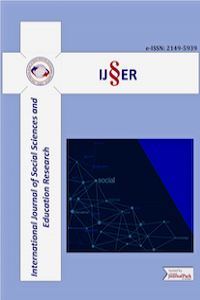Transmitting the tradition: An analysis on master-disciple relationship in Alevi Community of Turkey
The phenomenon called “Globalization” has been discussed within the all social science. For almost of all Anthropologists, the global issues cannot be avoidable to conduct their ethnographic researches in any fields. Globalization is a process of international integration arising from the interchange of products, ideas and other aspect of culture. After 1990’s the interpretation of a complex set of disputes and exigencies settled into a conventional narrative of paradigm shift, in which the intellectual past became essentialized as “traditional Area Studies” and “Classic Anthropology.” A Crucial theme is that the global/local nexus is one of unpredictable interaction and creative adaptation, not of top-down determinism. Theoretically, globalization studies have become the focal point for the convergence of interpretive Anthropology, critical Anthropology, postmodernism, and poststructuralism, which are combined with a tough empiricism.In this paper, I examine the relationship between master and disciple in the Alevi community in Turkey from the framework of Anthropology of Globalization. Traditionally Alevi Dede gives their disciples religious traditions and practices such like how to organize Cem ceremony and other rituals. To transmit their religious knowledge, religious masters called Dede visits villages where Alevis consist of the majority of the population. Then Dede give his disciple called Talip some kind of religious education. In the past Alevi communities in Anatolian villages were generally situated in remote areas where the infrastructure was not sufficiently installed. Even in Alevi villages there were no Dede.However, the situation has changed within the recent two decades. People can access to the remote areas by transportation system and internet access is also available everywhere in the countryside. In this paper, I try to reveal the current situation of master-disciple relation of Alevi community and describe how they transmit some kind of religious education to their disciples in the global era through an Anthropological analysis. At the same time, I investigate the whole of social change in Alevi communities in Turkey.
Keywords:
Alevi communities, Dede Anatolia,
- Yayın Aralığı: Yılda 4 Sayı
- Başlangıç: 2015
- Yayıncı: Mahmut DEMİR
